Abstract
Over half of a group of 373 inpatients with advanced malignant disease were treated with corticosteroids for a variety of reasons. They received either prednisolone or dexamethasone, or replacement therapy with cortisone acetate. Forty percent of those receiving corticosteroids benefited from them. A higher response rate was seen when corticosteroids were prescribed for nerve compression pain, for raised intracranial pressure, and when used in conjunction with chemotherapy. No significant difference in efficacy was noted between the 2 drugs. The results, however, suggest that with a larger sample, dexamethasone would have been shown to be significantly better than prednisolone in the management of nerve compression pain. The incidence of side effects was broadly similar with dexamethasone and prednisolone. The most common side effect was oral candidosis and there was a highly significant relationship between the use of corticosteroids and the prescription of nystatin suspension. Dexamethasone was more likely than prednisolone to cause oro-pharyngeal candidosis. Dexamethasone was also associated with significantly more cases of psychological disturbance and hyperactivity. On the other hand, dexamethasone seems less likely to cause oedema, weight gain and dyspepsia. Corticosteroids were withdrawn because of side effects in only 11 patients (5%)--6 were receiving dexamethasone and 5 prednisolone. Dexamethasone has been adopted as the standard corticosteroid for terminal cancer patients at Sir Michael Sobell House.
Full text
PDF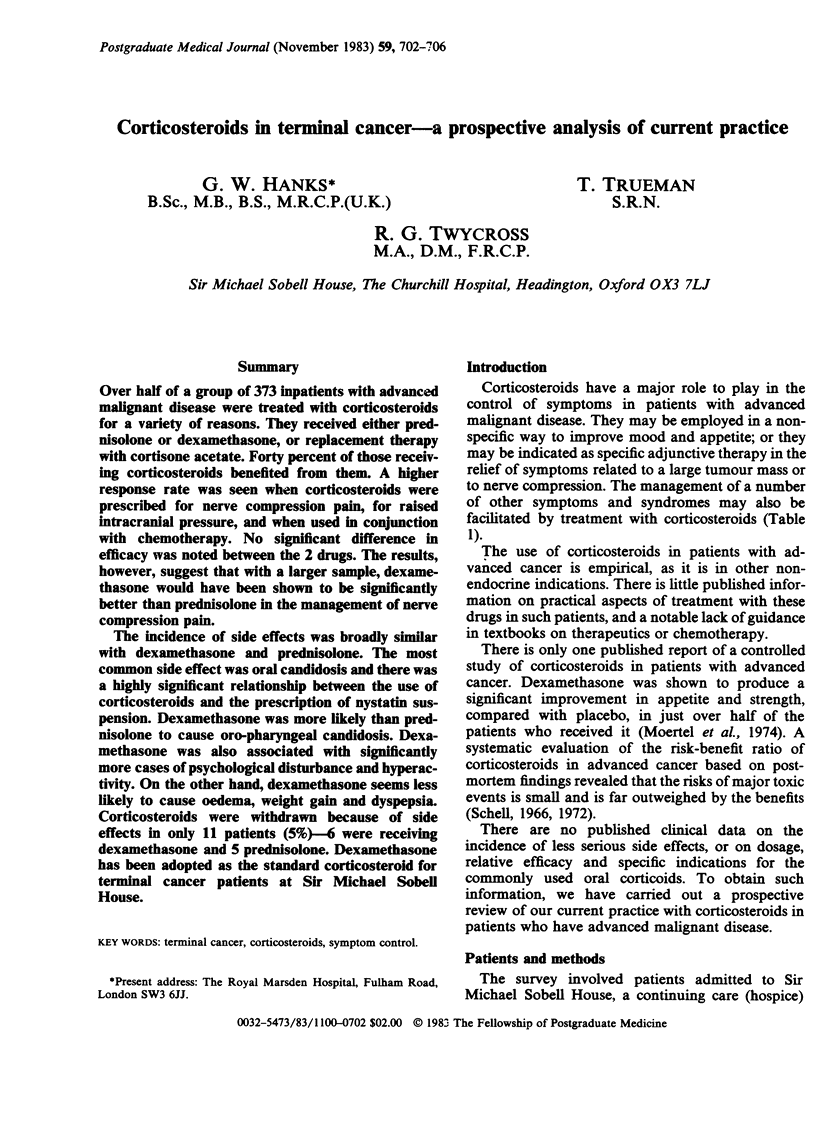
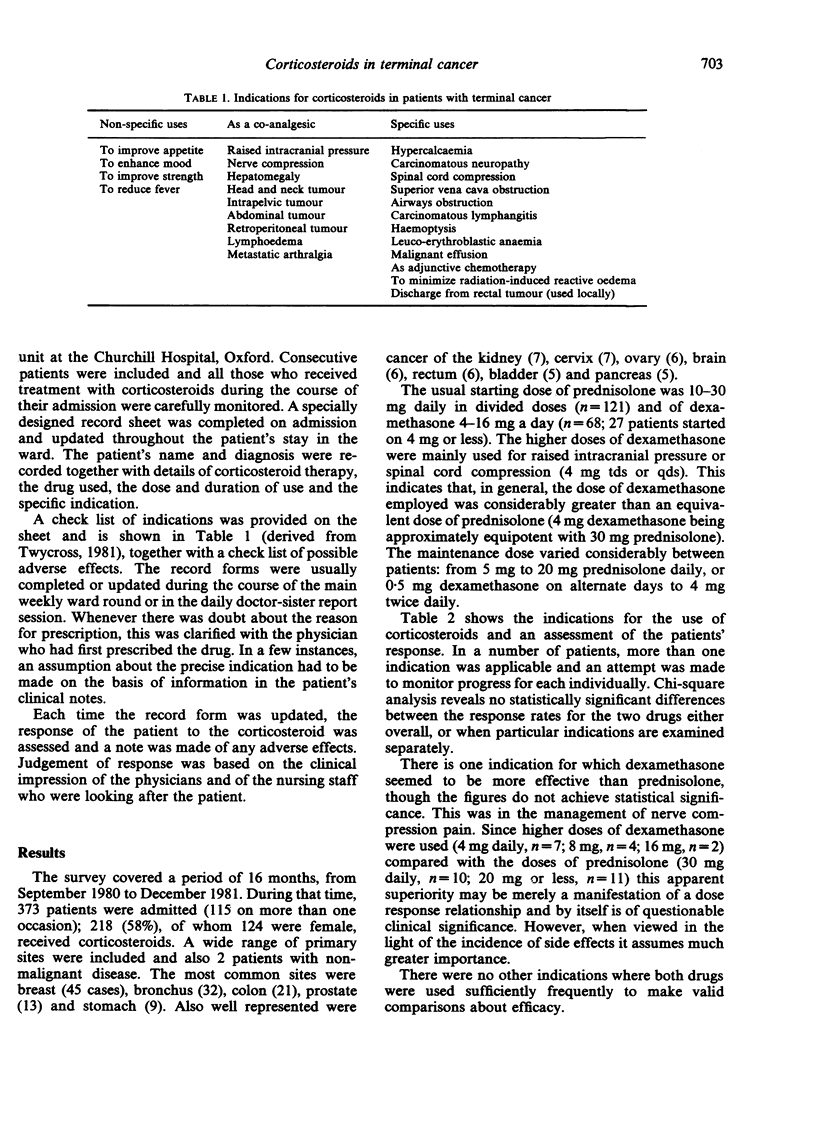
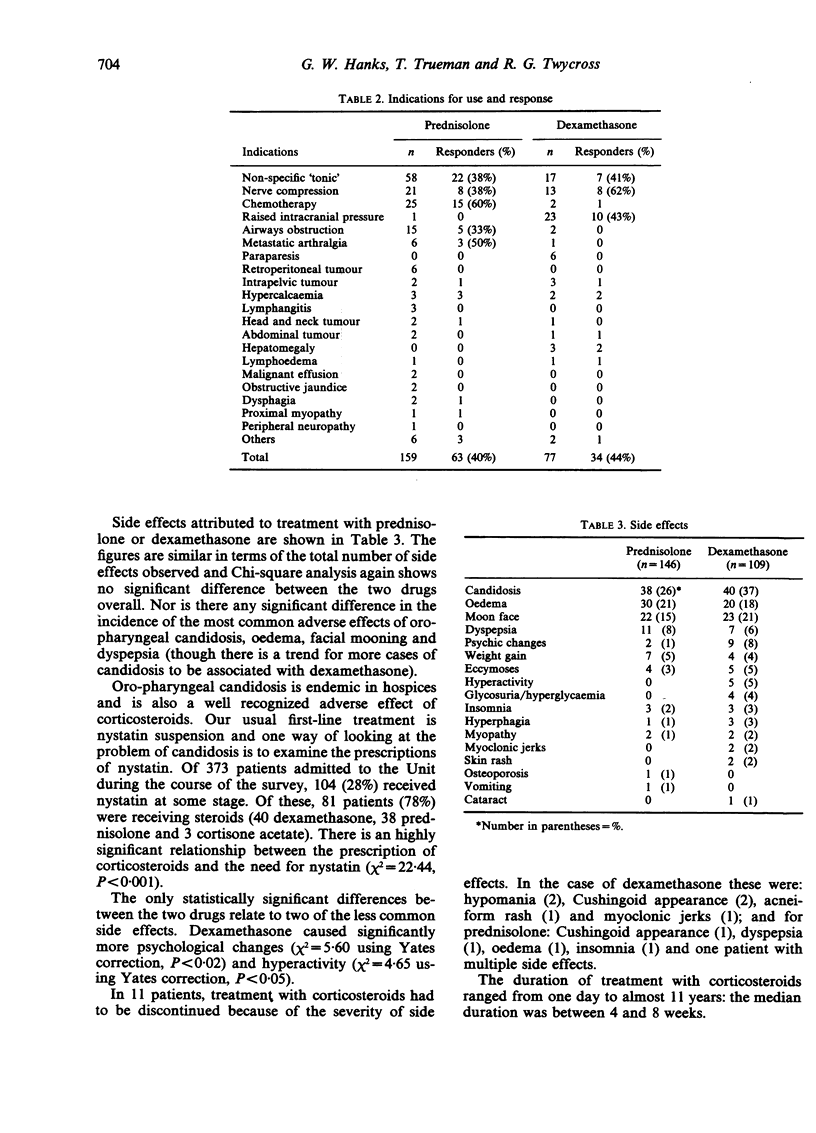
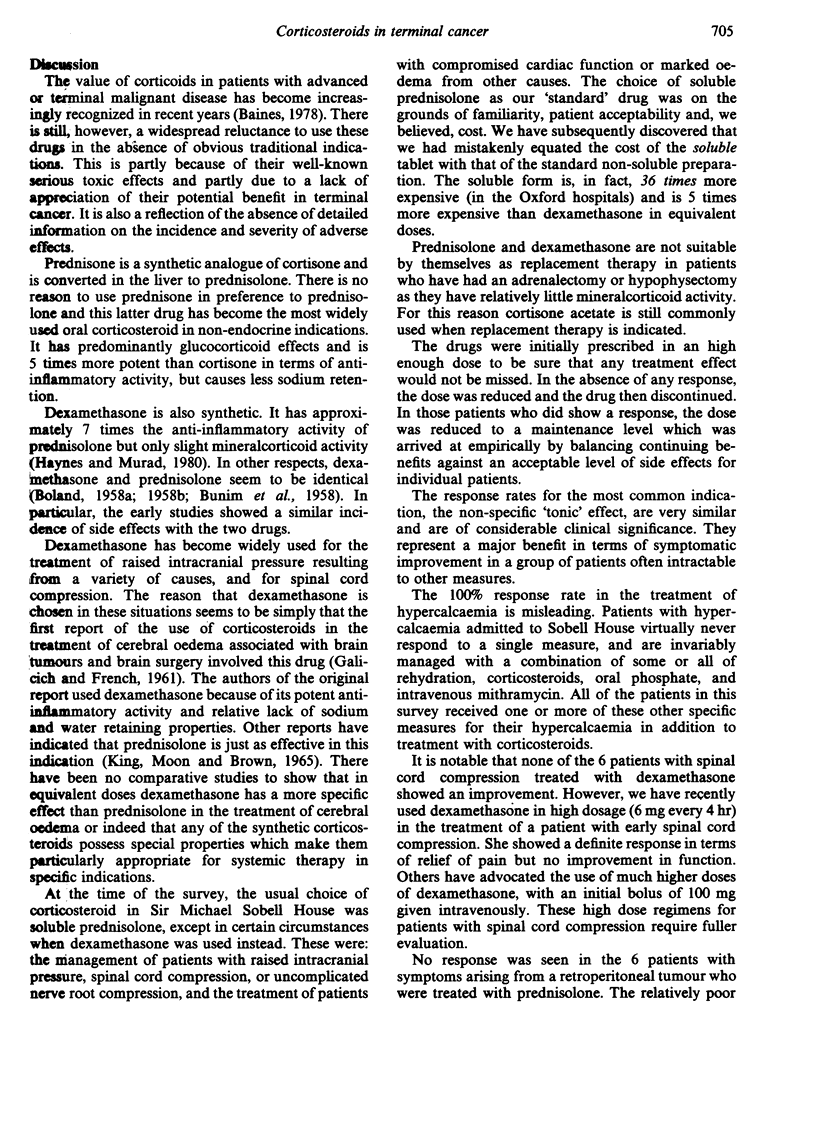
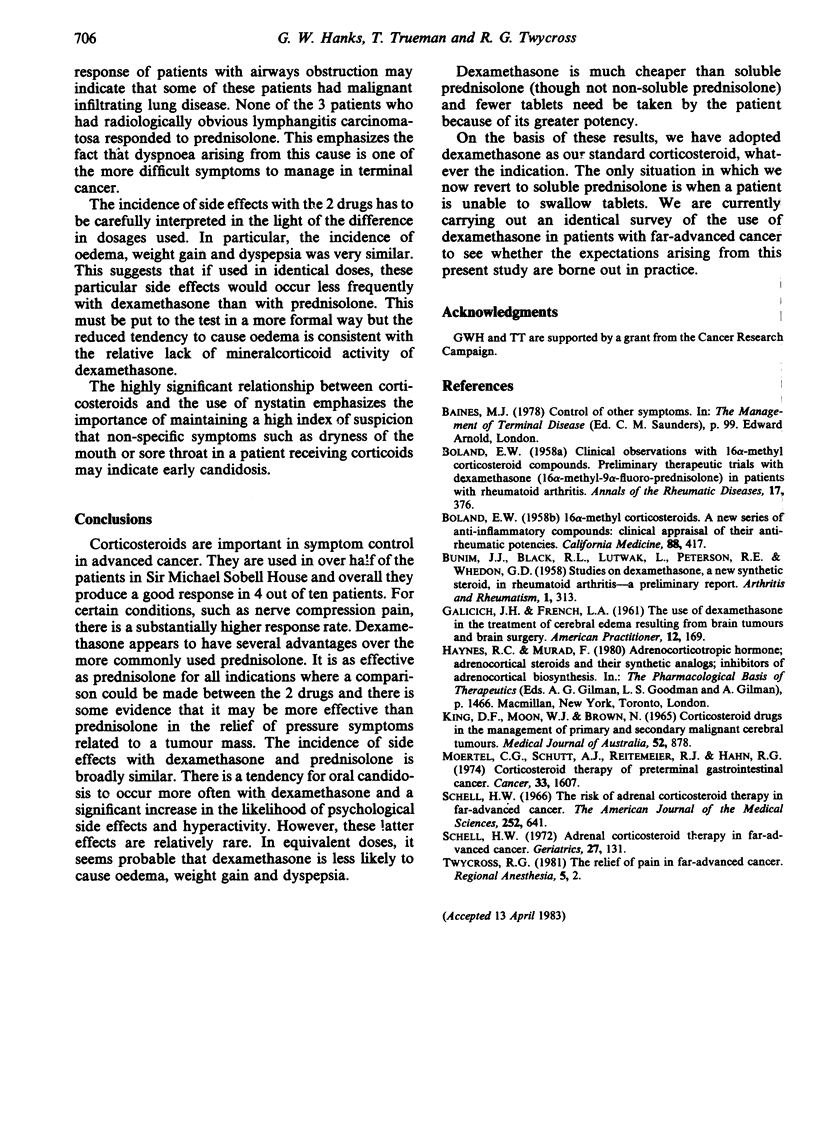
Selected References
These references are in PubMed. This may not be the complete list of references from this article.
- BOLAND E. W. 16a-Methyl corticosteroids; a new series of anti-inflammatory compounds; clinical appraisal of their antirheumatic potencies. Calif Med. 1958 Jun;88(6):417–422. [PMC free article] [PubMed] [Google Scholar]
- BOLAND E. W. Clinical observations with 16 alpha-methyl corticosteroid compounds; preliminary therapeutic trials with dexamethasone (16 alpha-methyl 9 alpha-fluoroprednisolone) in patients with rheumatoid arthritis. Ann Rheum Dis. 1958 Dec;17(4):376–382. doi: 10.1136/ard.17.4.376. [DOI] [PMC free article] [PubMed] [Google Scholar]
- BUNIM J. J., BLACK R. L., LUTWAK L., PETERSON R. E., WHEDON G. D. Studies on dexamethasone, a new synthetic steroid, in rheurheumatoid arthritis: a preliminary report; adrenal cortical, metabolic and early clinical effects. Arthritis Rheum. 1958 Aug;1(4):313–331. doi: 10.1002/art.1780010404. [DOI] [PubMed] [Google Scholar]
- GALICICH J. H., FRENCH L. A. Use of dexamethasone in the treatment of cerebral edema resulting from brain tumors and brain surgery. Am Pract Dig Treat. 1961 Mar;12:169–174. [PubMed] [Google Scholar]
- King D. F., Moon W. J., Brown N. Corticosteroid drugs in the management of primary and secondary malignant cerebral tumours. Med J Aust. 1965 Nov 20;2(21):878–881. [PubMed] [Google Scholar]
- Moertel C. G., Schutt A. J., Reitemeier R. J., Hahn R. G. Corticosteroid therapy of preterminal gastrointestinal cancer. Cancer. 1974 Jun;33(6):1607–1609. doi: 10.1002/1097-0142(197406)33:6<1607::aid-cncr2820330620>3.0.co;2-v. [DOI] [PubMed] [Google Scholar]
- Schell H. W. Adrenal corticosteroid therapy in far-advanced cancer. Geriatrics. 1972 Jan;27(1):131–141. [PubMed] [Google Scholar]
- Schell H. W. The risk of adrenal corticosteroid therapy in far-advanced cancer. Am J Med Sci. 1966 Dec;252(6):641–649. [PubMed] [Google Scholar]


